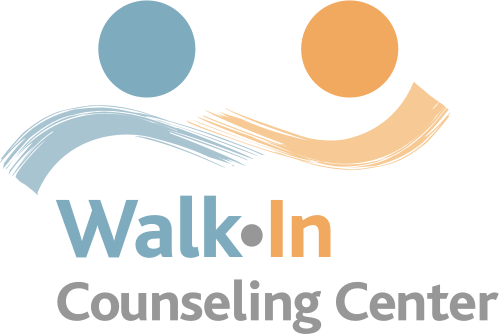What is counseling?
Everyone seeks advice and support from loved ones and trusted friends—people who can help us understand or solve a life problem. But sometimes we need more. Professional counseling involves someone trained to provide help. Counselors can help you recognize your internal worth and examine the way you see yourself. They also help you change old behavior you may have learned in your family. Counseling promotes growth and helps you:
- Express your feelings in a safe, supportive and nonjudgmental environment.
- Identify and sort out your problems.
- Improve your coping skills.
- Identify and achieve your goals.
- Identify longstanding patterns of behavior that keep you from solving your problems and developing new ways to look at them.
- Strengthen relationships and resolve problems.
When is it time to seek counseling?
No one answer is right for everyone, but if you are experiencing some of the following feelings, then counseling might help:
- You feel as if you can't cope alone.
- You feel trapped, as if there's nowhere to turn.
- You worry all the time and never seem to find solutions to your problems.
- Your feelings are affecting your sleep, appetite, job and relationships.
- You've tried to change, but things aren't getting better.
What are the kinds of problems that lead people to seek counseling?
- Anxiety and depression
- Family and relationship issues
- Poverty and homelessness
- Substance abuse and other addictions
- Sexual abuse, rape and domestic violence
- Eating disorders
- Career changes, job loss and job-related stress
- Social and emotional issues related to illness and disability
- Adaptation to life changes
- Grief and bereavement
- Problems with shame
- Problems dealing with anger
Are there risks of counseling? Some, such as...
- That it will be emotionally painful. As you examine personal problems you may become aware of things that are quite troubling or painful. This can lead to an increase in your distress or anxiety at least for a time.
- That the people in your life may resist your efforts to change. If you begin to change it could affect your family relationships and cause upset. When one person in a marriage changes and the other is unwilling to make changes, a divorce may result.
- That counseling or therapy may not help, despite your expenditure of time, money and effort.
- That you may mention to someone that you are in counseling or therapy and the other person will see this negatively, rather than positively.
- That some insurance carriers will limit coverage.
About Confidentiality at Walk-In
There are limits on confidentiality and your counselor should explain them before you begin counseling. It is essential you clarify these limits with your counselor before proceeding. Your records may become available to certain outsiders in the following situations:
- If you are in a custody dispute, you normally have to allow access to counseling records so the court can determine your fitness to parent.
- Under some circumstances in a criminal matter, a court may order access to your records, although this is typically done only after legal arguments have been heard.
- If you are part of a treatment program mandated by a court or part of a probation agreement, the court may have access to the records of your treatment. This should be clarified when you are in the process of deciding whether to agree to such a program.
- If your employer requires that you obtain some sort of treatment in order to keep your job, you should clarify whether you or the company is the client and who gets access to the information. Evaluations connected with employment applications are often open to employers.
- If your counseling or therapy is being paid for by an insurance company or health plan, they have the right to review the records to insure that the service is appropriate.
- If you bring a suit claiming psychological pain or injury, it is likely that your counseling records will be released to permit an examination of your emotional functioning.
The limits of confidentiality
Your counselor/therapist should explain the limitations on confidentiality listed below. It is always important to ask for more information if you are unclear about any of this, or if the situation changes. Generally counseling and the records connected with it are confidential, but there are exceptions where your welfare or that of someone you might harm is at issue.
- If you make a serious threat to harm someone else, and the counselor believes that you are about to do it, the counselor may have to make a call to try to prevent this from happening.
- If your counselor believes you are seriously suicidal, your counselor may have to contact someone in an attempt to prevent you from taking your life.
- If you are involved in child abuse or neglect your counselor is required to report this information, although the specifics of the duty may depend on where you live. In states like Minnesota this includes a pregnant woman who is abusing drugs during pregnancy – possibly endangering her unborn child. Your counselor may be required to report abuse or neglect of a vulnerable adult. This can mean you, if you are in somebody's care and have been abused or neglected, or a situation you describe to the counselor.
- If you tell your counselor of misconduct by a past helper – a doctor or counselor or other health care professional – the counselor may have a duty to report this to the licensure board which licenses that professional.
Relationship and Family Counseling
Every individual, couple or family experiences some problems along the way, but sometimes we have special needs or face difficult issues that seem to confound our efforts to make things better. Often counseling can help with problems such as:
- Children failing in school
- Rebellious teenagers
- Alcoholism or substance abuse by a family member
- Death in the family
- Marriage and family conflicts
- Sudden illness
- Unemployment
- Infidelity
What relationship and family counseling does
- Looks at your relationships within systems of friends, family, school, and work and sees them as a way of understanding how your problems developed.
- Focuses on the power of relationships within systems as the instrument of change and healing. Marriage and Family Therapy pioneered brief, solution-focused, family-centered treatment.
- Seeks to pinpoint problems and complete the therapy as soon as specific, concrete and measurable goals are met.
Resources re relationship and family counseling
The American Association for Marriage and Family Therapy www.aamft.org has the most complete site with suggestions on how to locate a therapist, parenting, adolescent problems and other family issues.
What is Anxiety?
Some anxiety is normal. It reminds us to lock the door at night or put our car keys away. Almost everyone has experienced anxiety at some point – butterflies in your stomach before a first date, tension in your stomach when the boss is upset, the way your heart pounds if you're in danger. Anxiety rouses you to take action if you're in danger (the fight or flight response). It also helps us to prepare for the big job interview, the final examination or a speech at the annual meeting. But too much anxiety can cripple you.
- Anxiety most commonly strikes people between late adolescence and the mid-thirties.
- About 25% of the population will suffer from severe anxiety at some point in their lives.
- It is more common in women than men.
- Depression often accompanies anxiety disorders.
- Many people who suffer from anxiety self-medicate with alcohol and drugs.
- Early intervention means rapid recovery.
- Anxiety is one of the most treatable of the mental disorders.
Types of Anxiety Disorders
- Generalized anxiety disorder
- Panic disorder
- Phobias
- Obsessive-Compulsive disorder
- Post-Traumatic stress disorder
Generalized anxiety disorder: people with generalized anxiety experience ongoing exaggerated tension that interferes with daily functions. Symptoms include:
- Constant worrying when there is no apparent reason to do so
- Excessive concerns about health, family, work or money
- Inability to relax
- Tiredness
- Irritability
- Poor concentration
- Insomnia
- Muscle tension
- Fatigue
- Headaches
- Depression, substance abuse or another form of anxiety disorder
Panic disorder: the primary symptom is the panic attack, a sudden and overwhelming fear of danger in which a person may experience:
- Pounding heart or chest pain
- Sweating, trembling or shaking
- Shortness of breath or sensation of choking
- Nausea or abdominal pain
- Dizziness or lightheadedness
- Feeling unreal or disconnected
- Fear of losing control, of going crazy or of dying
- Numbness in fingers and toes
- Chills or hot flashes
- As a result of the sudden onset of symptoms, people having panic attacks often believe they are having a heart attack
Phobia: an irrational and persistent fear of a specific object, situation or activity. People who suffer from phobias often try unsuccessfully to control their feelings or go to great lengths to avoid the things they dread. There are three types of phobias:
- Specific phobia – Extreme or excessive fear of an object or situation that is not generally harmful. For example, fear of heights, elevators or dogs.
- Social phobia – Fear of being frightened or scorned in social or performance situations. This may include fear of meeting new people, fear of public speaking or fear of using public restrooms. It can lead to isolation and social withdrawal.
- Agoraphobia – Fear of having a panic attack in a situation in which escape may be difficult or embarrassing. People may be afraid of shopping, dining in restaurants or traveling on public transportation.
Obsessive-Compulsive Disorder (OCD): the presence of frequently occurring irrational thoughts that cannot be controlled through reasoning.
- Common obsessions relate to a dread of dirt or germs, or nagging doubts.
- People with OCD often realize their fears are unreasonable, but they're unable to make them go away.
- People with OCD often engage in compulsive rituals, such as repeated hand washing, to make the fears go away.
- Compulsive behaviors can come to take up to an hour a day and eventually interfere with social and work relationships.
Post-Traumatic Stress Disorder (PTSD): PTSD occurs in people who have survived a severe or terrifying physical or emotional event.
- People with PTSD continue to experience the ordeal through nightmares or recurring memories, flashbacks or extreme distress when exposed to events that remind them of the ordeal.
- They may also feel numb or detached.
- Sleeping is disturbed.
- They find themselves feeling jittery or guarded.
- They experience depression.
- PTSD can be triggered by:
– Military combat
– Violent personal attack including rape, domestic abuse, and robbery
– Natural disasters including floods, hurricanes and tornados
– Tragedies including airplane crashes, bombings and hostage situations
– Physical or sexual abuse during childhood
– Witnessing another person's serious injury or death
Treatment of Anxiety Disorders
Anxiety disorders are the most treatable of the mental disorders. About 75% of people with anxiety disorders respond well to a combination of medication and cognitive behavioral therapy. Cognitive behavioral therapy consists of five elements:
- Learning: coming to understand the illness and to identify the symptoms
- Monitoring: keeping a journal or diary to record and monitor anxiety-producing situations
- Breathing: learning relaxation techniques to help combat the physical symptoms of anxiety
- Rethinking: learning to change your interpretation of physical symptoms from catastrophic to realistic
- Exposure: for some types of anxiety disorder, for example fear of elevators, you will be helped to encounter the situation in levels that will increase in intensity
Resources re Anxiety
- The American Psychiatric Association – www.psychiatry.org
- Anxiety Disorders Association of America – www.adaa.org
- Social Phobia/Social Anxiety Association – www.socialphobia.org
- Freedom From Fear – www.freedomfromfear.org
- Anxiety and Panic Hub (Panic Anxiety Education Management) – www.paems.com.au
- Learn Psychology - www.learnpsychology.org/student-stress-anxiety-guide
- Anxiety Today – www.anxietytoday.com
- Social Phobia – www.datehookup.com/content-all-about-social-phobia.htm
What is Depression?
Everyone feels sad or unhappy at times. Sometimes we're grieving the loss of a loved one or experiencing major illness, job loss or a divorce or separation. Although our feelings of sadness may be strong, they are normal and should diminish over time.
How can you tell if you're depressed?
- Depression is when your feelings of sadness or despair last longer than two weeks. Sadness begins to interfere with your daily activities such as working, eating and sleeping.
- You may come to feel both helpless and hopeless and stop enjoying things you used to like doing.
- You may even begin to blame yourself for feeling bad.
- You may experience yourself as burned out and useless.
- You may withdraw socially.
- You may lose interest in sexual activity and feel tired and apathetic.
- You may come to feel so overwhelmed and exhausted that you contemplate death or suicide.
About 25% of Americans suffer from depression at some point in their lives. Depression can come from situational pressures such as job stress, loss of a loved one or just the pressure of everyday living. However, body chemistry can also influence the thought process, and biological factors do contribute to some kinds of depression. Chronic illnesses such as cancer, heart disease or diabetes can be accompanied by depression.
For many people, however, depression is a signal that life is out of balance and change is needed. When your life situations become untenable, you may react by becoming depressed. The unhappy couple, the angry adolescent, the person whose standards are so high he or she cannot meet them are all candidates for depression.
Treatments for depression
Depression is a treatable condition. Unfortunately, shame and fear cause many people to suffer needlessly and to delay seeking treatment. Many people still believe depression is a sign of personal failure.
- A counselor can help identify the life problems that are contributing to your depression and help you decide on changes. You may need help to set goals, see new options and learn new approaches to your problems.
- A counselor can help you identify distorted thought patterns that contribute to your feelings of helplessness and hopelessness. For example, self-defeating thoughts such as “I've always been a loser and I always will be.”
- A counselor can help you to stop generalizing and sending yourself negative messages.
- A counseling can help you regain a sense of control and pleasure in life.
How medications can treat depression
Medications can be very useful in helping some types of depression, particularly moderate to severe depression. Medication combined with psychotherapy is especially helpful; however, your use of medication should be monitored by a prescribing physician.
Warning signs of depression
Depressive mood; pessimism and feelings of helplessness
- Sleep disturbances – inability to sleep or sleeping too much, irregular sleep patterns
- Appetite disturbance – eating far less or far more than usual
- Social withdrawal – refusal to go out to see friends
- Feelings of worthlessness or blaming self for problems
- Inability to concentrate on routine tasks
- Substance abuse – alcohol or drugs
Resources re Depression
- www.webmd.com/depression
- Dr. Ivan's Depression Central – www.psycom.net/depression.central.html
- National Depressive and Manic-Depressive Association – www.ndmda.org
- Postpartum Depression – www.postpartum.net
Topics
Free Counseling Services
Counseling services are completely free and anonymous, with no appointment needed. SOME CLINICS ARE NOW IN PERSON! All of our professional counselors volunteer their time.


